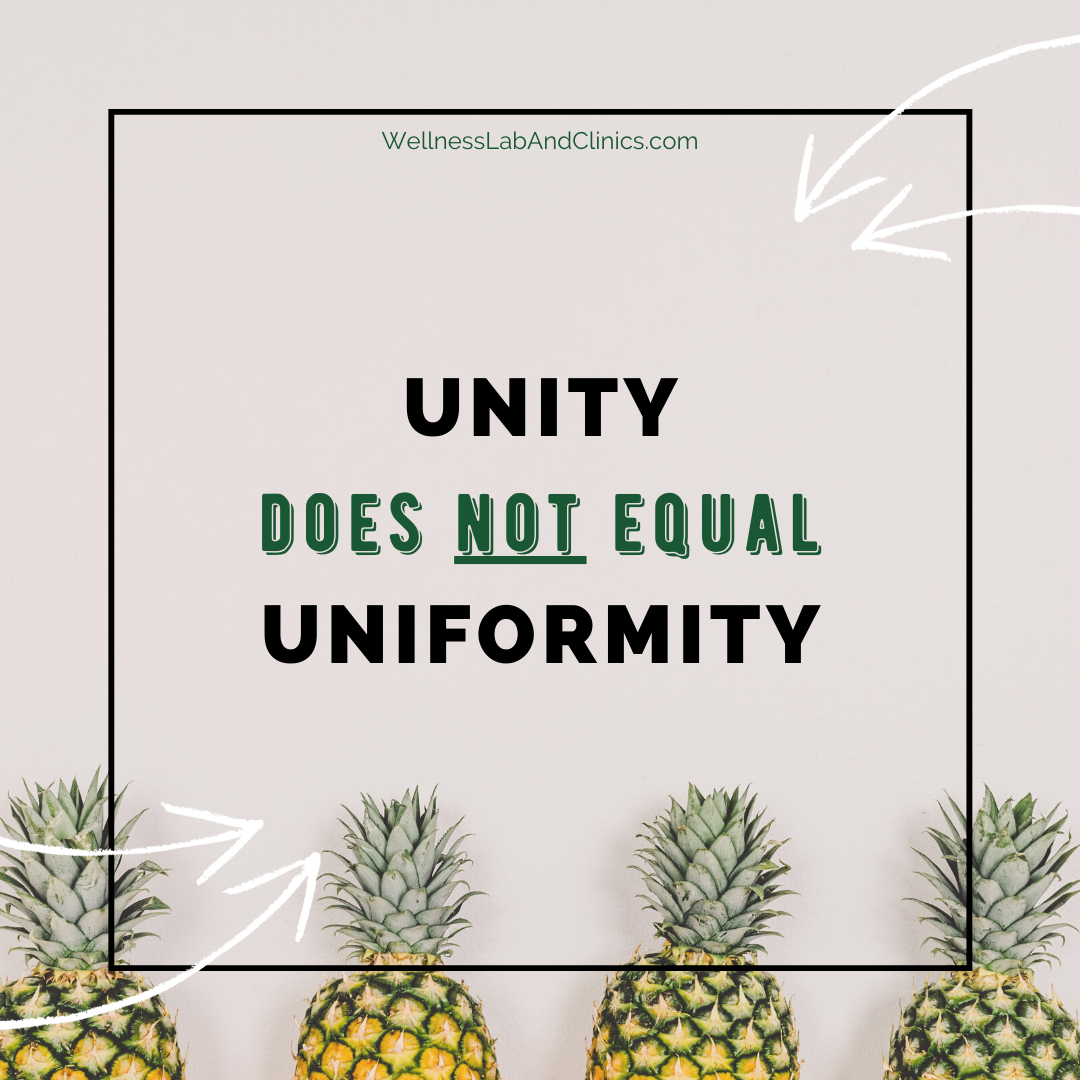Unity does NOT equal Uniformity - 5 steps that lead toward understanding {re-post}
/With the recent uprising of political unrest, radical racial reckoning, and pandemic-related divisions, this post has gotten significant responses. Please note that the original post was intended to help support healthy relationships. My hope is that it can be helpful in your conversations as well. May we seek to understand each other better with value and respect. Please feel free to reach out - I'd be happy to help get you in contact with a local provider near you.
"Oh, East is East, and West is West, and never the twain shall meet.”
Rudyard Kipling in Barrack-room ballads, 1892
The Great Divide
We humans can get hung up on our differences.
Of all the species in the animal kingdom, our preferences and opinions can so easily divide us. We have a 2yr old golden retriever named Penny Lane, and I can truly say that I have never seen her completely avoid another dog simply because they prefer wet dog food over dry or prefer land over water.
In relationships though, we can experience intense division over simple differences like restaurant preferences for date night and can move incrementally to more complex differences, such as opposing political sides, different parenting styles, or differences in spending habits.
The Polarized Conflict
In conflict, we can become fixated on an agenda to convert our partner to agree with us, to be on our side. Or, we can feel defensive when suspecting our partner is in it to remove us from this dream or idea to conform us to their own, and it soon becomes a polarized argument, where “East is East, and West is West, and never the twain shall meet” (Rudyard Kipling, 1892)
Achieving a United Front
The good news, however, is that agreement is not essential to resolving differences.
When we work in harmony with our partners, it’s helpful to remember that having different ideas is different than having different ideals.
Unity is not the same as uniformity. The ideal and hope of being on a united front with a partner in parenting or the desire to have a strong and safe home or country, to have financial security or a welcoming home can be a hope for both partners in a relationship and can be achieved in very different and meaningful ways.
The Danger of Saying, “I Understand”
Managing conflict is not as much about finding ways to agree with each other but rather reaching an understanding of the other. This is MUCH MORE than saying, “I understand.” Because those two words hold the most ambiguous meaning.
The Path Toward Understanding
We can achieve understanding with our partner by seeing this work of understanding as something we’re working toward and not a full on destination that stops abruptly.
Start here…
Ask your partner if they can help you understand their ideal better.
Let your partner know what you understand so far.
This is pretty much a summary of what you see/hear/notice.Then, ask if you are on track with understanding them.
This simple question reduces defensiveness and creates the space for your partner to clarify any areas where you may not fully understand their ideal.Once you hear the clarified ideal, just offer a simple summary to reassure them that you are on track with them.
The goal is when you ask your partner if they feel understood, they can say yes, and the tables turn: they will now ask you to help them understand your ideal better (this second half of the conversation will restart at #1).
The Hope of Harmony
We can achieve and maintain a unified front together with our partner as we seek to discover each other’s individuality, preferences, opinions, and ideas.
We can do this through seeking to understand the ideals of the other and removing the agenda to establish full uniformity.
Unity does NOT require uniformity.






